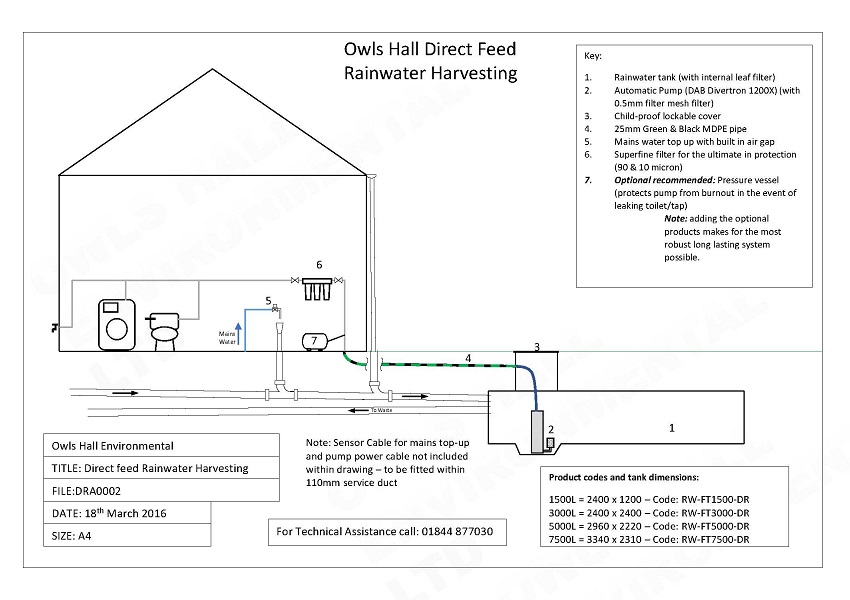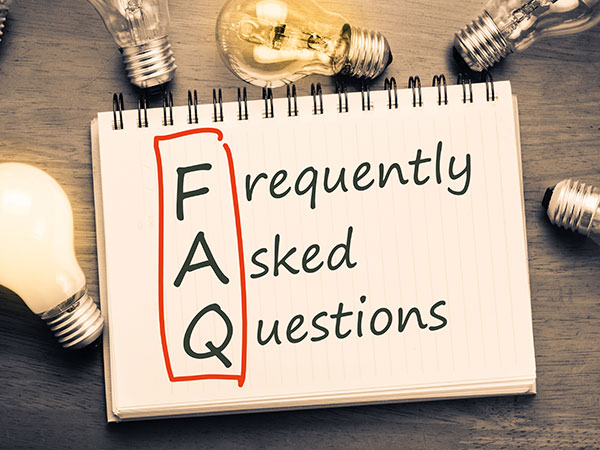The right rainwater harvesting solution for your property is available from Owls Hall Environmental – the home of smart water solutions.
There’s all kinds of rainwater collection solutions available, from complete systems to rainwater harvesting tanks and kits. We are able to cater for all needs, offering everything from large collection systems to small and medium options. Every property will have the solution they need to collect rainwater, reduce water consumption and save money in the long run.
Our top of the range rainwater harvesting systems are carefully selected to give you the choice of the best products available, helping you make better use of the rainwater that falls on your property. Our different types of solutions focus on well designed, quality components which offer a higher degree of filtration than you will find anywhere else on the market. Both domestic properties and commercial premises can feel the benefit of rainwater harvesting thanks to Owls Hall.
As experienced installers and service engineers, we are well placed for giving you trustworthy product advice about which of our solutions will best suit your rainwater harvesting needs.
Our unique rainwater harvesting products, combined with our solution-focused approach and 50 years of experience, make us the partner of choice for many homeowners, builders and ground workers throughout the UK, working from our base in Essex.
Browse our rainwater capture systems and products below and contact us directly if you want to discuss efficient and effective rainwater harvesting solutions. The right solution depends on your property, so it’s a good idea to make use of our expert advice.
Rainwater harvesting is a way of collecting and storing rainwater with a view of reusing it on your premises. This is often achieved via a rainwater harvesting system, with the stored water collected in a harvesting tank, ready to be used for household tasks like washing cars, washing clothes and flushing toilets.
It’s a great strategy for reducing your water bills by up to 50% and making sure you have enough water to cultivate your garden, even during periods of severe drought and hosepipe bans. It also reduces stress on the mains water supply, making this form of rainwater recycling more eco-friendly.

Rainwater harvesting is a way of collecting and storing rainwater with a view to reusing it. It is a great strategy to reduce your water bills and ensuring you have enough water to reuse in your house or garden in times of drought and hose pipe bans.

As a simple rule of thumb, for domestic system you will require about 1000 litres of storage per person.
There are more detailed calculations that can be performed to assess the best size of rainwater harvesting tank.

In a domestic house system, you can save up to 50% of your water consumption, although we feel it is more likely to be 40%.

If you’ve already decided that you want to install a rainwater harvesting system, there are a few other practicalities to get out of the way to make sure everything goes smoothly. This FAQ by Owls Hall Environmental gives you information on the key things to consider.

Owls Hall Environmental has collected a number of tips to help you save water at home. We’ve covered a range of water-saving ideas, from little changes you can make to your routines through to more efficient ways to use water in your garden.
In a period of increasingly unpredictable weather and damaging climate change, saving water where we can helps to ease the strain on Britain’s water supply. Our tips will also help you save money if you have a water meter and could also cut down on your gas and electricity bills.

Any water saving is good, whether it is a low flush toilet, or a rainwater harvesting system. These days we see water as a commodity which is regularly wasted.
Our complete rainwater harvesting systems can allow you to collect recycled rainwater and supply it to a number of domestic appliances, including toilets, washing machines and garden taps.
Storing water in underground rainwater tanks stands out as the optimal choice for numerous household rainwater setups. By being situated in a below ground rainwater harvesting tank, the water maintains a consistent, cooler temperature while staying shielded from sunlight. This prevents algae growth, ensuring your water remains fresh and clean over an extended period.
Smaller rainwater harvesting solutions, like water butts, reduce your reliance on the mains system by providing water that you can use for all kinds of outdoor activities. A water butt can stay in keeping with the overall aesthetic of your garden or yard without taking up much space. It’s then easy to take water from the water butt via a tap at the bottom.
Enjoy cleaner rainwater with leaf filters, particle filters and more – all compatible with our rainwater harvesting systems. Find out more about our rainwater filters.
Our rainwater harvesting pumps are essential for connecting your harvested rainwater to your domestic systems. Our pumps and top-up controls are of the highest quality.
Maintain your rainwater harvesting system to get the most out of it, increase its lifespan and to make it as simple to operate as possible with these rainwater harvesting accessories.
The recent heat waves and droughts seen throughout the UK this year (and the potential for more in future according to the Met Office), many are looking for alternative ways to save water.
There are numerous benefits of investing in a rainwater harvesting solution for your home aside from helping during periods of drought, including:
Investing in a rainwater harvesting system makes environmental and economic sense.
The uses of water saved using rainwater harvesting kits seem endless. Just a few include:
While there are rules in other countries, it’s perfectly legal to harvest rainwater in the UK. However, there are conditions and rules that needs to be followed.
If you’re planning on using the water in the following ways, you won’t be required to apply for a water abstraction license:
With that said, there are some situations where you need to obtain an abstraction license. This includes if you’re combining harvested rainwater with other sources and pumping it into a reservoir storage system to be sent to any of the following inland waters:
You can get full information on this from the Gov.uk website.